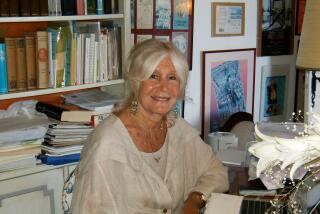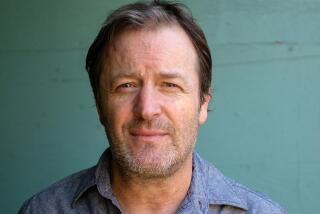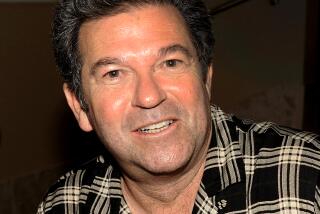Jack Vance, prolific, prize-winning pulp author, dies at 96
Jack Vance, prolific author of science fiction, mystery and epic fantasy, died Sunday at 96, his son John told the Associated Press. He had written more than 60 books during his long life.
Vance, whose real name was John Holbrook, also published under the names John Holbrook Vance, Alan Wade, Peter Held, John van See and Jay Kavanse, and he wrote three Ellery Queen novels. His best-known series, “The Dying Earth,” was set in a future in which the sun is slowly dying out, and a world where technology and the supernatural exist side-by-side.
Vance’s novel “The Dragon Masters” won the Hugo Award in 1963, followed by another Hugo for “The Last Castle” in 1967, and another for his memoir “This is Me, Jack Vance!” in 2010. Along the way he also picked up a Nebula Award, an Edgar Award, a World Fantasy award for lifetime achievement, was made a Grand Master by the Science Fiction Writers of America, and was inducted into the Science Fiction Hall of Fame. Still, according to the Guardian, Vance always said he wrote just to make money.
While he had no aspirations to literary fame, Vance certainly made his mark on other writers, and developed a loyal and passionate base of fans. Among the many who cite Vance as an influence are Ursula K Le Guin, George RR Martin, Gene Wolfe and Jack L Chalker.
Broader recognition of Vance’s literary merits seems to have been held back by the impression that he was just another genre writer, his books hidden under pulpy, monster-laden covers. As Michael Chabon told the New York Times Magazine in 2009, “Jack Vance is the most painful case of all the writers I love who I feel don’t get the credit they deserve. If ‘The Last Castle’ or ‘The Dragon Masters’ has the name Italo Calvino on it, or just a foreign name, it would be received as a profound meditation, but because he’s Jack Vance and published in Amazing Whatever, there’s this insurmountable barrier.”
Legally blind since the 1980s, Vance continued to write with the assistance of his wife, Norma, and with specially designed computer software, according to his son. His final novel, “Lurulu,” was published in 2000.
ALSO:
Was Rudyard Kipling a plagiarist?
Does Stephen King believe in God? Yes and no
Secrets revealed in death of Salvadoran poet Roque Dalton
More to Read
Sign up for our Book Club newsletter
Get the latest news, events and more from the Los Angeles Times Book Club, and help us get L.A. reading and talking.
You may occasionally receive promotional content from the Los Angeles Times.










